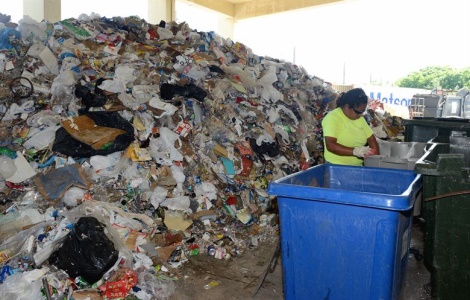Every second, about one truck full of waste textiles ends up in the landfill or is burned, reads a UN Environment Programme report. The report predicts that if this isn’t stopped, the fashion industry will exhaust a quarter of the global carbon budget.
It is not an exaggeration to say that climate change is and will be one of most threatening global issues in the decade that has just begun. We are constantly grappling with the grim realities that speak of the consequences of waging a battle against nature. We tend to think that individual choices don’t have the power to remedy the situation. Fashion choices are generally thought to be one of such individual choices. If that got you thinking, you might want to read further.
 Fashion is pivoted around the latest trends and currently, the leading fashion retailers, catering to the masses, follow the “quick response model”. This means that the trends quickly move from runways to stores and then, to the customers. This is fast fashion. It is centred around making high-end fashion trends affordable to the mainstream masses.
Fashion is pivoted around the latest trends and currently, the leading fashion retailers, catering to the masses, follow the “quick response model”. This means that the trends quickly move from runways to stores and then, to the customers. This is fast fashion. It is centred around making high-end fashion trends affordable to the mainstream masses.
However democratic it may sound, fast fashion is not harmless. In the process of quick production, the material used has to be inexpensive and the durability is not at all a concern. What this implies is that the quicker the clothes move from the runways to the stores, the faster these clothes move from the consumers to the waste piles. Not only wasteful consumption, the fast fashion industry is also to be blamed for the production processes that are not environmentally friendly.
A UN investigation reads that the fashion industry creates 20% of global waste water and 10% global carbon emissions, which is greater than the emissions of both maritime shipping and international flights, put together. Surprising, is it?

One of the first critics of fast fashion, the author and journalist Elizabeth Cline, in her 2012 book titled Overdressed: The Shockingly High Cost of Cheap Fashion addresses the environmental and human costs of fast fashion. The clothes are mostly sourced from production units across developing countries where the workers are paid inadequate wages and are made to work in unfit conditions. The clothes are also generally made from non-biodegradable synthetic material or contain harmful dyes, etc. The disposal of such material only furthers environmental damage.
Owing to the rising concerns of the negative impact of fast fashion, the retailers are now trying to make changes and claim to be shifting to ‘sustainable’ practices. ‘Sustainable’ has become such a buzzword these days that one can be hoodwinked with the term cleverly being used to disguise a marketing strategy. Like- H&M recently started collecting old garments. But, in return of a medium-sized bag full of old clothes, the retailer offered a 15% discount on the next purchase. This only makes one question the real intent behind the so-called sustainable practices. Further, most of these clothes are not recyclable to begin with so it makes on wonder where all those collected clothes are going.
What is even more shocking is how the last season’s trends are burnt by the biggest fashion brands to ensure they don’t reach a seconds market! The priority for brand protection has been pegged higher than the environment by most fashion houses for a long time now!
 So, the next time you are about to pick a dress you saw on TV the other day, think twice. You might be paying more than just money for it and your choice matters more than you think it does.
So, the next time you are about to pick a dress you saw on TV the other day, think twice. You might be paying more than just money for it and your choice matters more than you think it does.
About The Author: Shalini Jha
 A Literature student, Shalini is an alumna of Miranda House, Delhi University. Shalini runs a menstrual awareness campaign called ‘Project अल्हड़’ in her hometown Bhagalpur in Bihar. The district-wide campaign is to reach out to help spread awareness to ensure that menstruation is a stigma-free and myth-free experience for all menstruators. An ardent reader, Shalini pens down meaningful sentences occasionally. Shalini tries to do her bit in making turtles happier and the Earth greener.
A Literature student, Shalini is an alumna of Miranda House, Delhi University. Shalini runs a menstrual awareness campaign called ‘Project अल्हड़’ in her hometown Bhagalpur in Bihar. The district-wide campaign is to reach out to help spread awareness to ensure that menstruation is a stigma-free and myth-free experience for all menstruators. An ardent reader, Shalini pens down meaningful sentences occasionally. Shalini tries to do her bit in making turtles happier and the Earth greener.

